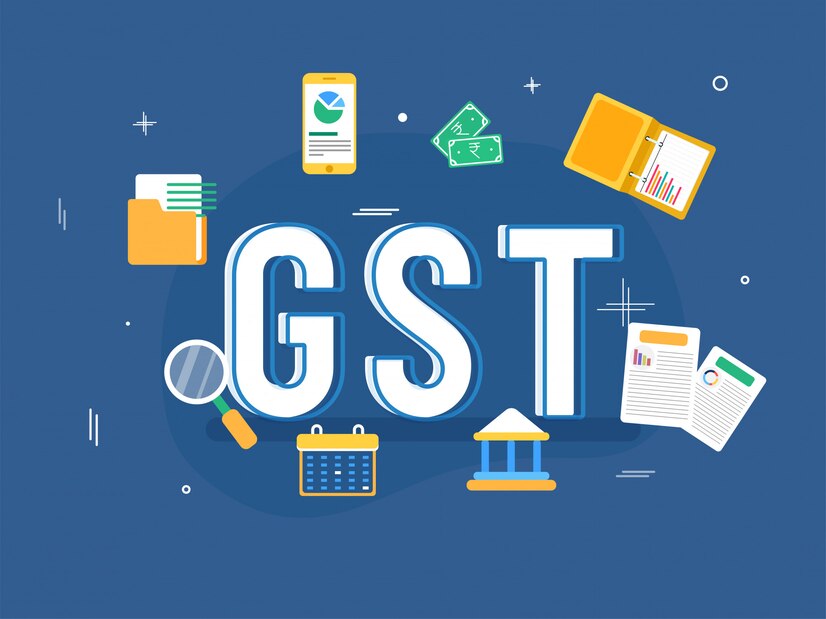Goods and Services Tax, commonly known as GST, refers to a comprehensive consumption-based policy tax imposed on the supply of services and goods in India. This tax system is developed to facilitate the indirect tax structure and build a more transparent and efficient tax administration.
Therefore, it becomes imperative for every business owner to understand and manage GST payments to avoid penalties, save funds, and ensure legal compliance.
In this blog post, we will explore the essential steps to master GST payments online to help you safeguard yourself against potential pitfalls and hefty penalties.
Let’s get exploring!
Understanding GST and Its Significance
GST is a value-added tax system imposed on the worth of goods and services at each phase of modern trade. This tax system remains divided into two segments: Central GST (CGST) and State GST (SGST).
Moreover, Integrated GST (IGST) is also imposed on inter-state goods or service supplies in India. Below is a brief overview of the GST process.
Registration
The primary step in mastering GST payment is to enrol your company under GST if your annual turnover exceeds the threshold limit specified by the tax administrators. Formal registration ensures better legal compliance and allows you to levy GST from clients and file for input tax credits.
Tax Collection and Settlement
As a registered company, you must collect GST payments from your clients on taxable goods and send them to the state authorities.
Input Tax Credit (ITC)
Companies can claim credit for the GST payments made on purchases and expenditures against the GST payments done on sales.
Efficiently handling input tax credits can reduce the GST penalty and positively affect the fund flow.
Filing GST Returns
GST returns must be filed either monthly or quarterly, depending on the company’s annual turnover. Timely and proper return filing is necessary to avoid fines and maintain legal compliance.
Tips to Follow to Save Funds on GST Payments
Below are some effective tips to save funds on your next GST payment online.
1. Plan Your Tax Payment Mindfully
Strategise your organisational processes to take benefit of available tax rebates, turnover thresholds, and composition schemes. Examine the effect of GST on your cost system to remain competitive and reduce the tax obligation.
2. File GST Returns Timely
It is rational to file GST returns timely to save funds on GST payments and avoid late fees. To accomplish this, you can consider using accounting software or automated tools that can assist in handling compliance deadlines efficiently.
3. Avail Input Tax Credits
Ensure appropriate documentation and legal compliance to claim the maximum eligible input tax credits. Keep extensive records of all input taxes settled and invoices as proof while seeking claims during audits.
4. Examine Invoicing Rules
Incorrect or insufficient invoices can delay your input tax credits claim settlement. Hence to avoid this, you must thoroughly review all invoices to ensure they comply with the GST rules, including required details and accurate GST rates.
5. Leverage the Reverse Charge Mechanism (RCM) Wisely
Under Reverse Charge Mechanism, the goods and service recipient is accountable for paying GST instead of the vendor. So to leverage this facility, you must know how to apply RCM and include it in your tax planning.
6. Categorise Goods and Services Properly
Categorise your goods and services accurately as per the correct GST rates. Misclassification can lead to inaccurate tax computations and possible fines.
How to Avoid Penalties?
Here are some tips that will help you avoid penalties and non-compliance with GST payments.
1. Stay Updated
GST regulations and laws usually change from time to time. Hence, it is essential to stay updated with the latest modifications.
Regularly check authorised government websites and consult tax specialists to ensure regulatory compliance.
2. File Accurate Returns
Filing false returns or providing incorrect details can lead to extreme fines and legal penalties. Therefore, it is advisable to double-check all monetary details and seek expert assistance if required to ensure proper return filing.
3. Make Timely Payments
Avoid delays in GST payments to prevent higher interest rates from accumulating. Also, to make the process more streamlined, you can use electronic payment methods that ensure hassle-free transactions.
4. Maintain Audit-Ready Documents
Maintain extensive and organised documents of all monetary transactions related to GST. It comprises receipts, invoices, tax payments, and Input tax credit claims. Being audit-ready can save you from possible penalties during tax assessments.
5. Understand Your Thresholds
Always remain well-informed about the threshold limits for GST registration and other compliance provisions. Failing to register or comply suitably can lead to fines and legal penalties.
Final Thoughts
To summarise, mastering GST payments is essential to run a thriving and legally compliant business. Moreover, companies can readily save funds and avoid legal penalties by remaining up-to-date with the GST filing process and thoughtfully planning their tax structure.
Also, maintaining proper records, filing GST returns timely, and adhering to tax regulations will help you improve your financial efficiency and establish a reputation for dependability and reliability in the marketplace.



